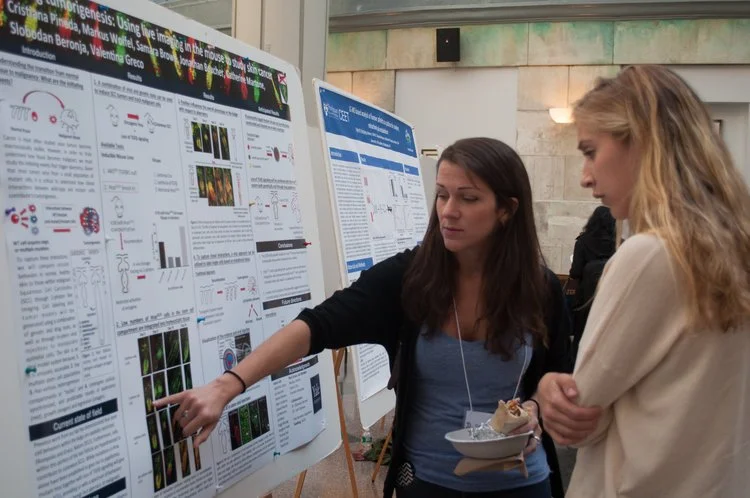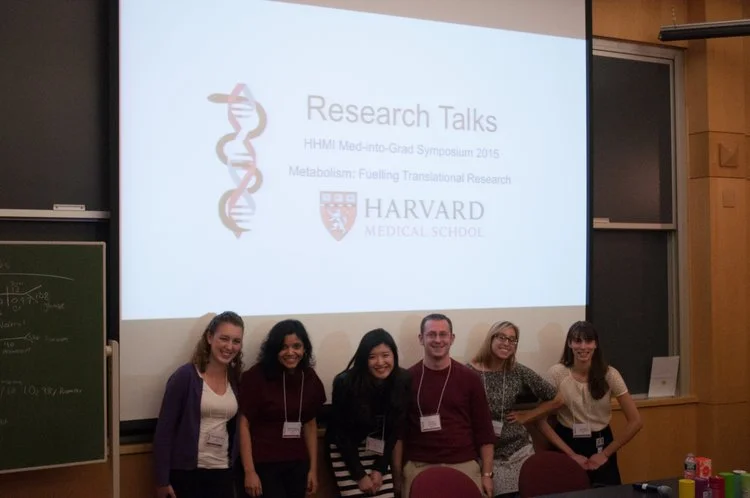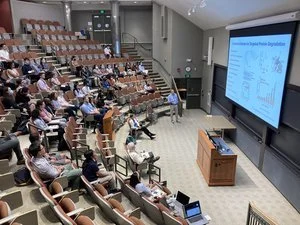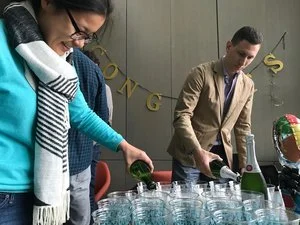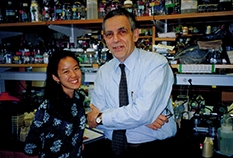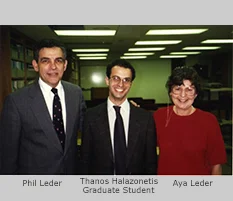About the Leder Program
INTRODUCTION
The Leder Human Biology and Translational Medicine Program (LHBTM, LHB, or simply "Leder") provides PhD students with a working knowledge of the fundamentals of human biology and disease through a series of courses designed to enrich their training in translational science. The program aims to demystify the culture and practice of medicine, facilitating future collaborations between clinicians and basic scientists. Students are not required to conduct translational research for their dissertations. Students who successfully complete the LHB Program will receive a certificate in Human Biology and Translational Medicine with their PhD.
The program is open to all HILS G1 students. The full program runs for 1.5 years, beginning in Spring of the G1 Year, and it is interdigitated with a student's other graduate program requirements. After the formal LHB Program is completed, students are encouraged to continue to participate in Program activities and are provided with ongoing mentoring opportunities throughout their time at Harvard.
Mission
The LHB Program has two goals. First, it provides PhD students with a working knowledge of the fundamentals of human biology and disease, primarily through a series of courses, to enrich their basic science training and broaden their research interests. Second, it demystifies the culture and practice of medicine, facilitating future collaborations with clinicians and physician-scientists, through activities designed to bring students into a hospital environment for direct contact with physicians, patients, medical students, and physician-scientists. Students who successfully complete the LHB Program will receive a certificate in Human Biology and Translational Medicine with their PhDs.
Program Activities
There are activities for the Leder Program every month. These activities range from academic lectures, dinners, and other social events. The student-led nature of the program means new events are always coming up, and if you have an idea for an event, you will find the support to make it happen.
Leder events include but are not limited to:
Academic Events
The Annual Leder Retreat
LHB/MD-PhD Grand Rounds
Careers in Translation Dinner Series
Med Into Grad Symposium
Social Events
Annual Welcome Dinner for New Students
Monthly Happy Hour
Boating Happy Hour
Leder Graduation Celebration
Why “Leder”?
The Leder Program in Human Biology and Translational Medicine was named after Dr. Phil Leder: a truly exceptional scientist and leader.
He was the founder and first Chair of the Harvard Medical School Department of Genetics, where he was an inspiration to students, postdoctoral fellows, and faculty. As a postdoctoral fellow working with Marshall Nirenberg at NIH, his experiments led to the cracking of the genetic code, for which Marshall Nirenberg was awarded the Nobel Prize. He identified the first mammalian gene to undergo splicing and had fundamental insights into the structure of immunoglobulin genes. He then turned his attention to cancer and recognized the need for in vivo models for cancer. To this end, he used genetic engineering to make the first mouse model of human cancer, dubbed the “oncomouse." This approach to cancer is still very much at the forefront of cancer research. Phil continued to make progress in studies of cancer until his retirement a few years ago. He made many seminal discoveries while leading the Department of Genetics to its current status as one of the best in the world. He was able to build the department not only by choosing good scientists and then nurturing each one to achieve their potential, but also because he has excellent judgement of personality and character, and knows how to build community.
Although Phil is most well-known for his scientific achievements and leadership of the Genetics Department, those who know him personally recognize him as an outstanding human being, with integrity, warmth, kindness, and an uncanny ability to communicate with each person in a way that seems unique and personal. Phil credits his parents, Polish immigrants, for all he accomplished.
Phil was an incredibly effective mentor for graduate students and postdoctoral fellows. During his time at NIH, he did not have many opportunities to mentor PhD students. Once he established his lab at HMS, he was a magnet for students, and mentored 17 students through their PhD. In 2015, he was awarded the Division of Medical Sciences Outstanding Faculty Award which is given each year to someone who is outstanding in research, mentorship and service to the community. Our name, often shortened to the "Leder Program" is one to be proud of and should inspire each of us to be more like Phil.
Phil Leder
Phil Leder and Hsuichen Chen (Graduate Student)
